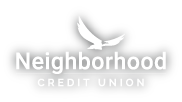Carolyn Jordan: 'Credit Unions Are My Life's Work'
Published March 1, 2022
By Brock Fritz
This blog was contributed by the Credit Union National Association (CUNA)
Neighborhood Credit Union’s Carolyn Jordan sees shifting diversity efforts through her 42-year career.
Carolyn Jordan has spent her 42-year professional career at Neighborhood Credit Union, starting in an entry-level position when she was 18 at then-Dallas Postal Employees Credit Union.
Currently the chief growth officer at the $1 billion asset credit union in Dallas, Jordan is responsible for digital online and mobile channels, data analytics, special projects, and new product development.
She recently spoke with CUNA News about her career, Black History Month, professional diversity and development, her belief in credit unions, and her love of reading, walking, and traveling.
CUNA News: What led you to the credit union industry?
Carolyn Jordan: I was 18 years old and had been out of high school for almost a year. I didn’t know anything about credit unions or the philosophy. During that time, new staff went to a one-day orientation to learn about the history and philosophy of credit unions. I remember being in awe throughout the day.
I never realized that there was a financial institution with the type of directive and mission of credit unions. “Not for profit, but for service.” What an epiphany. It really resonated with me, and I was hooked.
Q: What do credit unions mean to you?
A: Credit unions are my life’s work. I see them as especially vital in communities of color because of their accessibility, affordability, and the focus on financial education and saving. There was a reason why my father was always able to get his loans from a credit union instead of a bank.
Credit unions are uniquely positioned to help African Americans and other people of color build wealth.
Q: What does Black History Month mean to you?
A: Black History Month is a time to teach and reflect on the contributions and sacrifices made by Blacks and African Americans to this country and to the world. But it is more than just a month-long celebration.
African-American history is American history, our shared history for all Americans. It is something that should be taught, learned, and celebrated all year.
Q: Why is it important to recognize months and days like this?
A: It is important because it fosters understanding, a sense of togetherness, and inclusion for both employees and members.
Q: How have workplace diversity, equity, and inclusion (DEI) efforts changed during your professional career?
A: In the early years of my career, there wasn’t much diversity overall in the credit union movement. I was the first and only Black person for several credit union-related boards and committees in which I served in the early 2000s.
It’s fabulous that this is changing now, and I have noticed it for several years.
It’s gratifying to see the partnership and collaboration of CUNA with organizations like the African-American Credit Union Coalition, Coopera, and Inclusiv that help to drive these efforts. I’m especially thrilled to see more Black women, men, and people of color being chosen for CEO spots and other top executive positions.
The trend of having vice presidents and officers directly responsible for DEI reflects a deliberate and strategic focus on these efforts.
Q: What do you like to do outside of work?
A: I’m an avid reader and walker. I’ve walked several half-marathons.
Right before the height of the pandemic in 2020, I traveled to Southeast Asia, visiting Singapore, Thailand, and Malaysia. What an adventure!
I’m a doggie mom and an advocate for pit bulls.

This blog was written by Brock Fritz and contributed by the Credit Union National Association (CUNA)
Who We Are
As an active part of the community for 94 years, Neighborhood Credit Union is a not-for-profit financial organization serving the state of Texas with branch locations in Collin, Dallas, Denton, Ellis, Greyson, Kaufman and Tarrant counties. With assets topping $1 billion, Neighborhood Credit Union has a continuously growing membership of nearly 70,000. For more information, call (214) 748-9393 or visit our homepage.

